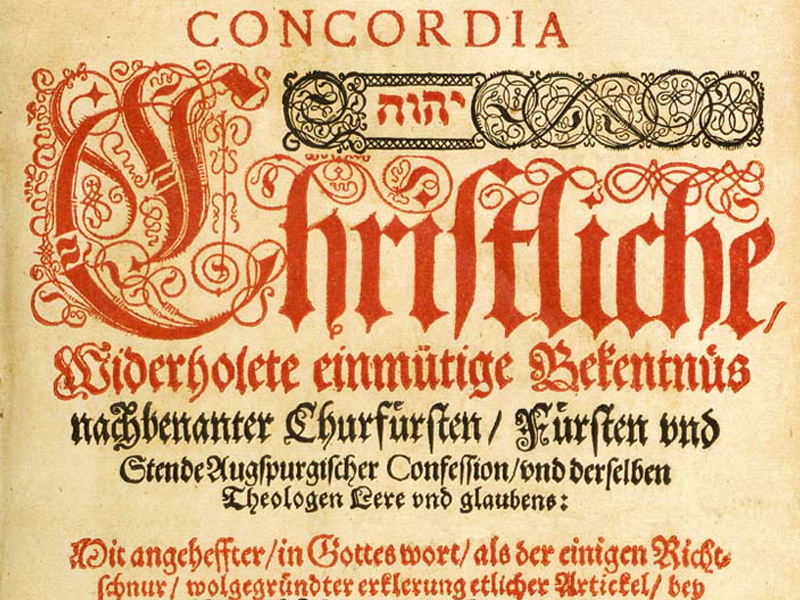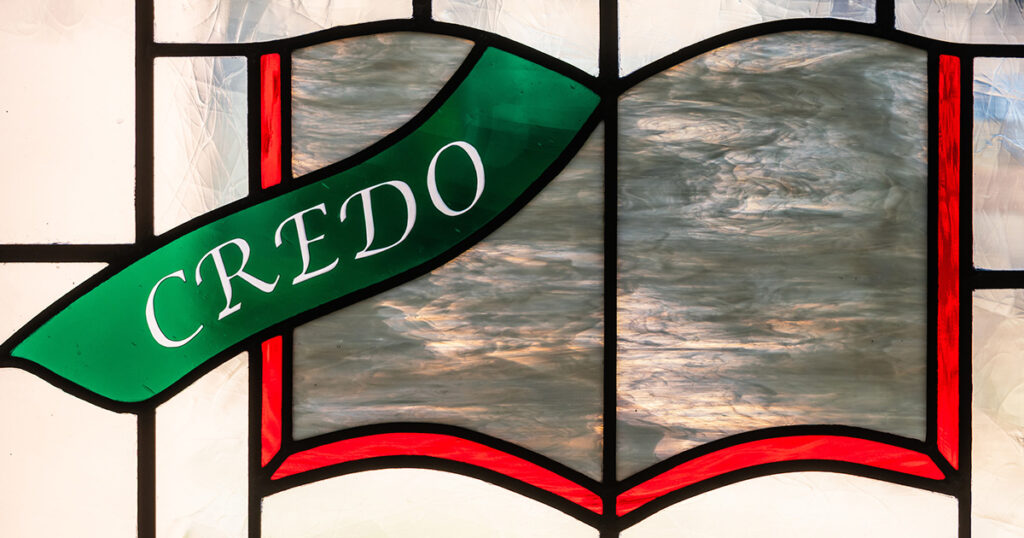In the arguments over Christ’s presence in the Lord’s Supper, the Reformed side invoked Aristotle’s philosophical adage that “the finite cannot contain the infinite” (finitum non capax infiniti).
A little piece of bread is too small, they argued, to contain the Second Person of the Trinity. Since God is infinite, He cannot be fully present in anything that is merely physical.
The Lutherans asked, “What about the Incarnation, in which God became man?” The Reformed replied that they did believe that Jesus Christ is fully God and fully human, but they doubled down on their principle. The Son of God, they said, was not completely incarnate in the man Jesus. Rather, the Second Person of the Trinity continued to reside in heaven, even as part of Him took on flesh. This teaching became known as the extra Calvinisticum, the “Calvinist beyond.”
Thus, an inadequate sacramental theology leads to an inadequate Christology. To be sure, the Sacrament doesn’t “contain” Christ’s body, and Christ’s body doesn’t “contain” the Son of God in the same way that a bottle contains milk. This is not what Lutherans believe about the sacramental presence and the hypostatic union of the two natures of Christ.
But the notion that “the finite cannot contain the infinite” also shows confusion about what infinity is, who God is, and what God can do.
So Luther took up the issue in his Confession Concerning Christ’s Supper (1528). Luther addressed Zwingli’s insistence that the Communion wafer or a human body is too small to enclose the infinite God:
There is no need to enclose him here, as this spirit dreams, for a body is much, much too wide for the Godhead; it could contain many thousand Godheads. On the other hand, it is also far, far too narrow to contain one Godhead. Nothing is so small but God is still smaller, nothing so large but God is still larger, nothing is so short but God is still shorter, nothing so long but God is still longer, nothing is so broad but God is still broader, nothing so narrow but God is still narrower, and so on. He is an inexpressible being, above and beyond all that can be described or imagined.
(LW 37:228)
This is Luther at his most mind-blowing. God is infinitely large, but He is also infinitely small. To be infinite transcends everything that our reason or imagination can conceive.
Outer space with its far-flung galaxies seems infinitely vast, and yet everything that makes up those galaxies — every atom, every quantum particle and wave — seems infinitely small. But the universe is not infinite at all. Only God, who created it all, is infinite. And He fills His entire creation.
Luther didn’t know about modern astronomy or quantum physics, but his understanding of God’s infinity helps us to appreciate God’s power and mercy. “Nothing so large but God is still larger.” He governs the affairs of nations, the unfolding of history, and the movement of the galaxies; but He also attends to every sparrow that falls and keeps track of every hair on our head (Matt. 10:29–31). “Nothing is so small but God is still smaller.”
God rules over all eternity, which also gives Him unlimited time to hear our prayers and to give each of us His full attention.
To say that God “can’t” do something — as in “can’t” fully taken on a human nature or “can’t” be present in the bread and wine of Holy Communion — is a ludicrous underestimation of His infinite power. And God employs His infinite power for our salvation.
St. Paul calls attention to “the immeasurable greatness of his power toward us who believe, according to the working of his great might that he worked in Christ when he raised him from the dead and seated him at his right hand in the heavenly places” (Eph. 1:19–20).
Now the ascended Christ rules and fills everything, for the service of His church: “And he put all things under his feet and gave him as head over all things to the church, which is his body, the fullness of him who fills all in all” (Eph. 1:22–23).





